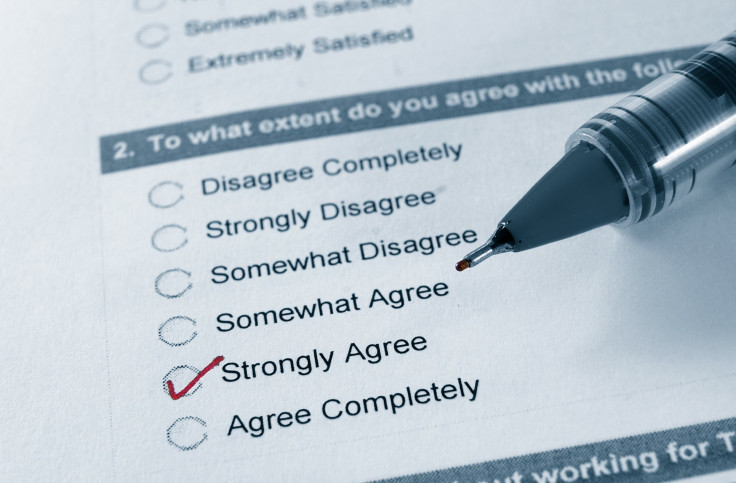Online Autism Test Screens For Key Autistic Traits, But Could This Be Risky Self-Diagnosis?

As of Wednesday, over 408,000 people have taken an online test to find out if they possess any autistic traits. And although the test's creators say it's not meant to be diagnostic, how dangerous is it to engage in a similar form of self-diagnosis?
Home to around half a million people living with an autism spectrum disorder (ASD), the United Kingdom is just as eager as Americans to learn more about ASD. So when British reality TV show Embarrassing Bodies featured an online test designed to show autistic traits in adults, people at home jumped on their computers.
Dr. Srini Pillay, assistant clinical professor at Harvard University Medical School, explained some problems with self-diagnosis in Psychology Today: “One of the greatest dangers of self-diagnosis in psychological syndromes is that you may miss a medical disease that masquerades as a psychiatric syndrome.” In extreme cases, self-diagnosing depression, for example, is dangerous because brain tumors cause symptoms of depression or psychosis. By the same token, self-diagnosing a panic disorder is dangerous because one may overlook serious health conditions such as hyperthyroidism or an irregular heartbeat.
The test's creators, psychologist Simon Baron-Cohen and his colleagues at Cambridge University’s Autism Research Centre, say the test is meant to motivate those that need help to talk to their doctors and say it is simply an interesting way to raise awareness of the prevalence of autistic traits in adults.
The quiz takes about seven minutes to complete and is made up of 50 simple multiple choice questions centered on your personality and outlook on life. Examples of the statements in the online questionnaire include: “I prefer to do things with others rather than on my own,” “I enjoy doing things spontaneously,” and “I am fascinated by numbers.” Your score on the quiz is a culmination of your answers, and a higher end score is meant to show that you have more autistic traits.
The Daily Mail revealed Britain’s overall averages on the quiz: Men scored higher than women; engineering scored the highest in occupations; and teaching scored the lowest. The quiz was very similar to a personality test and seemed designed to determine if an individual had an extroverted or introverted personality. (My low score indicated that I had an outgoing personality and was not likely to have autism.)
Although this may seem like a simple result, it is far more complex to conclude that someone with a reserved personality has autistic traits. The test’s creators can claim it’s not meant to provide a medical diagnosis, but undoubtedly someone will take the results as hard evidence. If you must, take it to satisfy your curiosity, but your doctor’s opinion is the only one that matters.



























